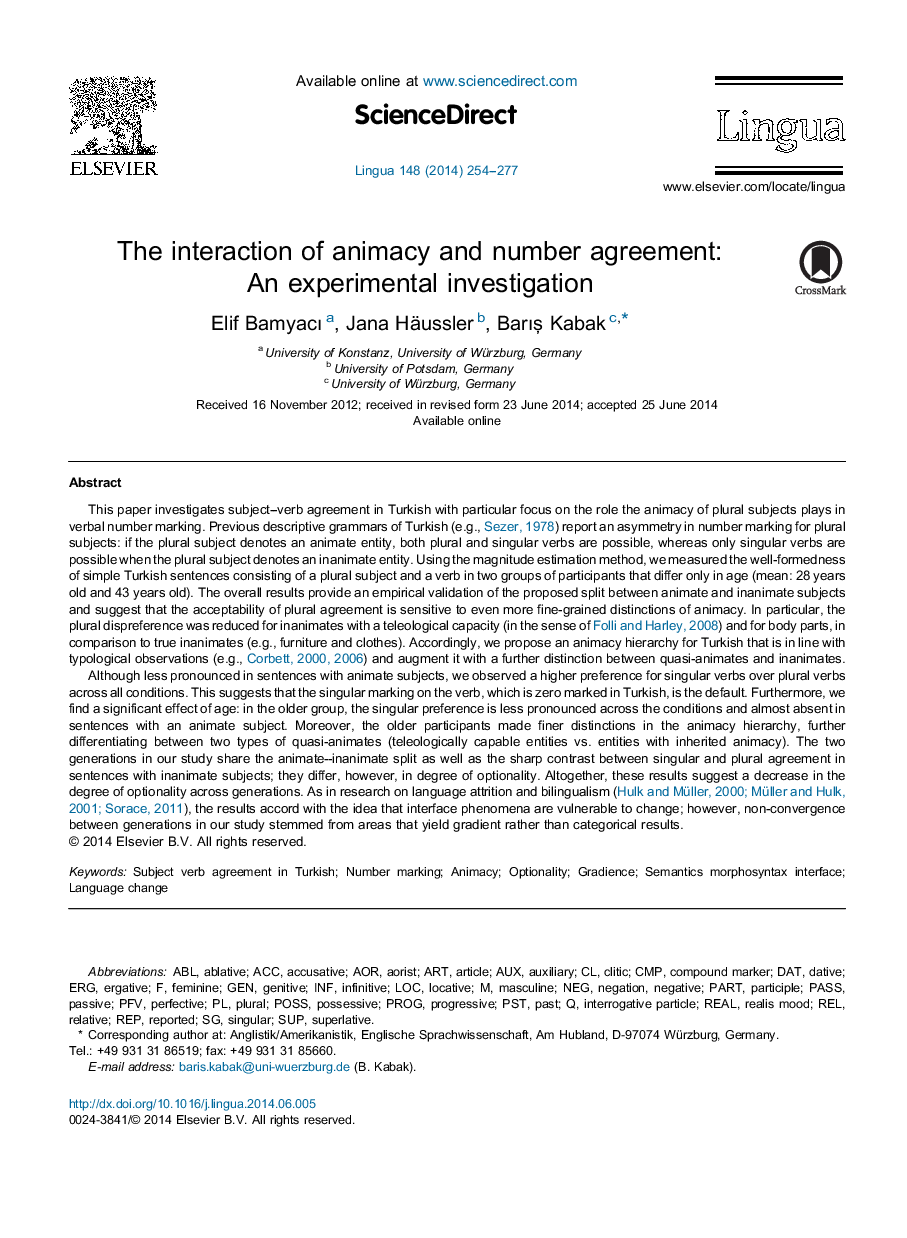| Article ID | Journal | Published Year | Pages | File Type |
|---|---|---|---|---|
| 7298561 | Lingua | 2014 | 24 Pages |
Abstract
Although less pronounced in sentences with animate subjects, we observed a higher preference for singular verbs over plural verbs across all conditions. This suggests that the singular marking on the verb, which is zero marked in Turkish, is the default. Furthermore, we find a significant effect of age: in the older group, the singular preference is less pronounced across the conditions and almost absent in sentences with an animate subject. Moreover, the older participants made finer distinctions in the animacy hierarchy, further differentiating between two types of quasi-animates (teleologically capable entities vs. entities with inherited animacy). The two generations in our study share the animate-inanimate split as well as the sharp contrast between singular and plural agreement in sentences with inanimate subjects; they differ, however, in degree of optionality. Altogether, these results suggest a decrease in the degree of optionality across generations. As in research on language attrition and bilingualism (Hulk and Müller, 2000, Müller and Hulk, 2001, Sorace, 2011), the results accord with the idea that interface phenomena are vulnerable to change; however, non-convergence between generations in our study stemmed from areas that yield gradient rather than categorical results.
Keywords
Related Topics
Social Sciences and Humanities
Arts and Humanities
Language and Linguistics
Authors
Elif Bamyacı, Jana Häussler, BarıŠKabak,
